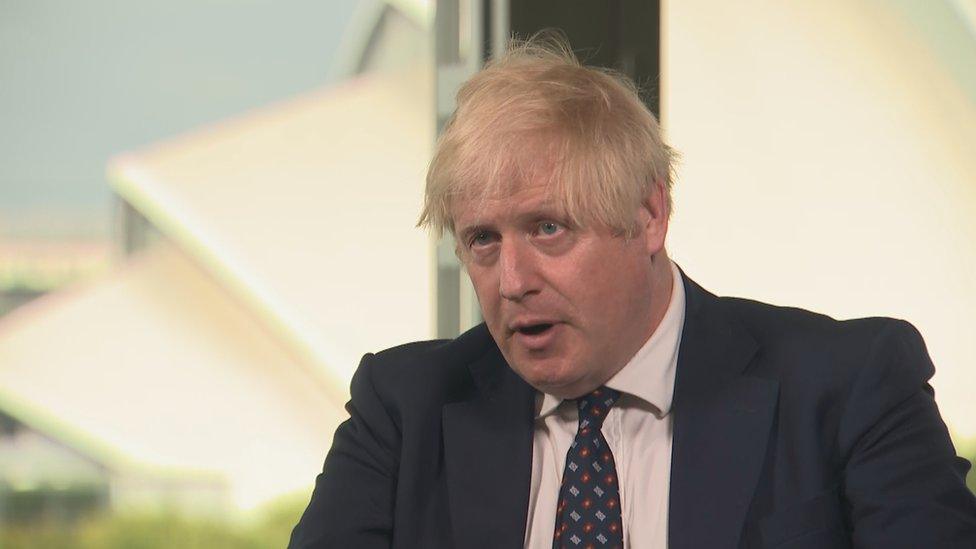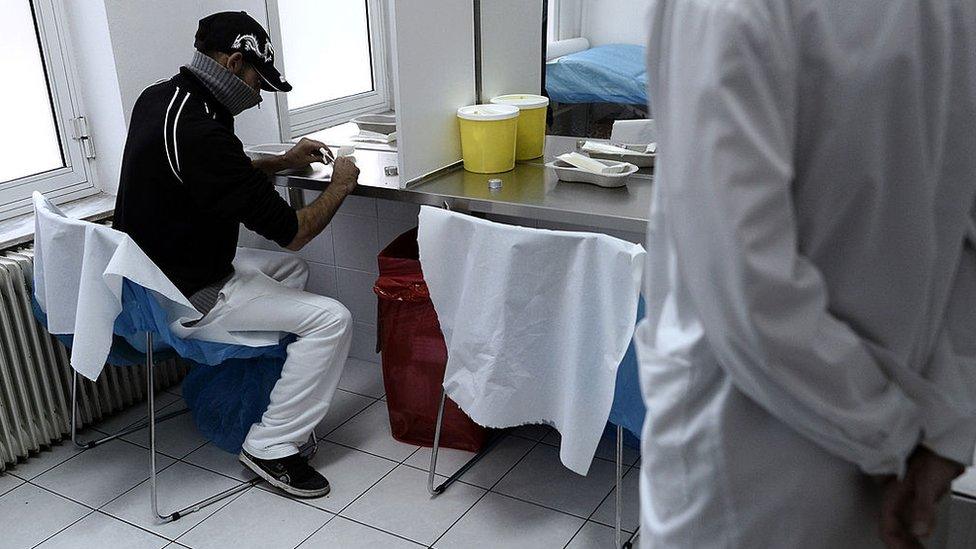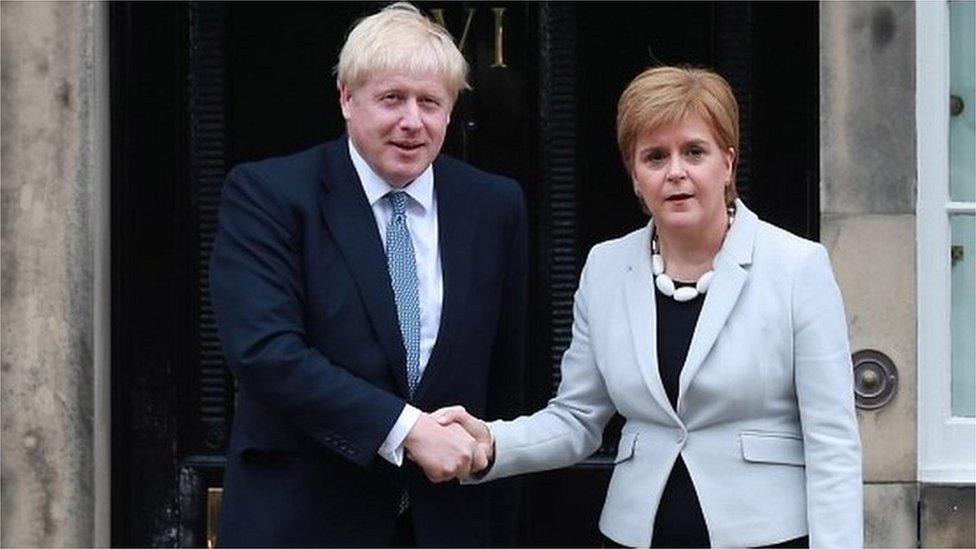Boris Johnson 'not in favour' of drug consumption rooms
- Published

Boris Johnson says he is "instinctively" opposed to drug consumption rooms, which the Scottish government wants to introduce.
Scottish ministers say the facilities would help tackle the record level of drug-related deaths.
But they say they have run into "legal barriers" as the Misuse of Drugs Act is reserved to Westminster.
The prime minister told BBC Scotland that he was "not in favour of encouraging people to take more drugs".
And he instead urged the Scottish government to sign up to Project Adder, which takes a "tough approach" to drug couriers and dealers.
Drug-related deaths in Scotland increased to a new record of 1,339 last year, by far the highest rate recorded in Europe and more than three-and-a-half times the rate of deaths in England and Wales, which have also recorded the worst toll since records began.
Scottish drugs policy minister Angela Constance told MSPs on Tuesday that the rate of deaths in Scotland was "as heart-breaking as it is unacceptable", and described it as "our national shame".
She said it would be "our new national mission" to turn the tide on the issue - and said "detailed work" was being done on safe consumption facilities - where addicts can inject drugs in a clean, supervised environment.
She said: "We know that they are not the only solution, but they help to save lives - and we are committed to implementing them irrespective of the constitutional constraints that we face."

Users can take drugs under supervision at so-called safe consumption rooms
The move has been backed by senior medical professionals, who have complained of an "impasse" between the administrations in Edinburgh and London over drug policy.
However there have long been questions over whether Holyrood could legislate for such facilities - which are already used in several European countries - given the UK government is opposed to them and key drugs legislation is reserved to Westminster.
Mr Johnson told BBC Scotland he was not in favour of any policy which could encourage people to take drugs.
He said: "The number of deaths from drugs is utterly tragic, and we have to deal with it. I am more than willing to work with the government of Scotland and authorities at every level.
"I am not in favour, instinctively, of encouraging people to take more drugs. What I am in favour of is helping problem addicts off drugs, helping people off their dependence, but I am also in favour of a tough approach."
The prime minister encouraged the Scottish government to sign up to Project Adder - standing for Addiction, Diversion, Disruption, Enforcement and Recovery - which combines policing with treatment and recovery services.
He said this was helping to put "a ring of steel" around drug gangs, which he said were "engaging in unbelievable evil".

Boris Johnson and Nicola Sturgeon last met in July 2019 - and will not be renewing their acquaintance this week
Mr Johnson was also pressed on why he has not met with First Minister Nicola Sturgeon as part of his two-day trip to Scotland, instead opting to visit a police headquarters and an offshore wind farm.
Ms Sturgeon said people would think it was "odd" and "strange" that Mr Johnson had not taken up her invitation of a meeting at her Bute House residence in Edinburgh.
The prime minster said he was "always happy to meet Nicola or anybody from the devolved administration", but was in Glasgow to talk to the police about preparations for November's COP26 climate summit.
He said: "We are working together now at every level. We are working together to do the vaccination rollout, we are working together to prepare for COP26, we are working together to make sure we have a successful economic bounceback and that is the number one priority."
Mr Johnson said there would "of course" be a role for Ms Sturgeon around the climate summit, saying it was "a huge undertaking by the whole of the UK".
However when pressed on exactly what this role would be, he said it would be to "evangelise and exhort everyone that she represents to do the needful" to restrict global warming.
He also said he was not aware of proposals for the development of a new oil field at Cambo, west of Shetland, which have sparked controversy ahead of the conference.
He said it was important to recognise the value of hydrocarbon fuels, but said his "vast preference" was to "use our incredible power to generate clean electricity".